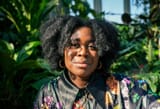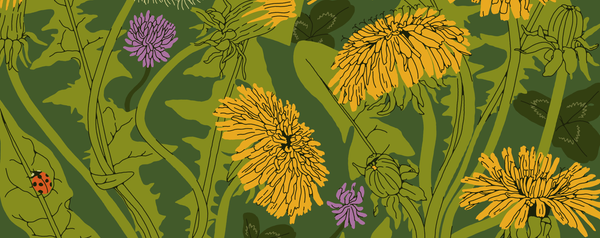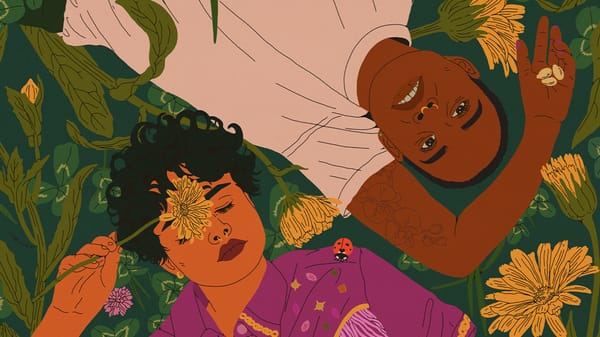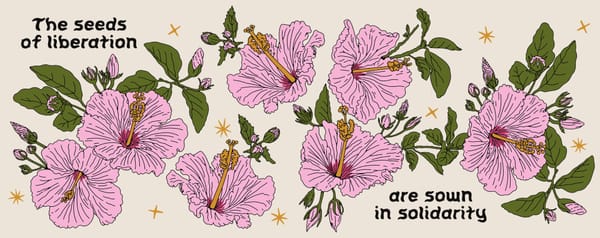Bending the Shape of Fear
The fear that follows me and so many other marginalized folks, amidst rising fascism and violence, is real. But through community, creativity, and tenderness, I reclaim aliveness. Choosing to feel, create, and love—even in fear—is a radical act of resistance and survival.
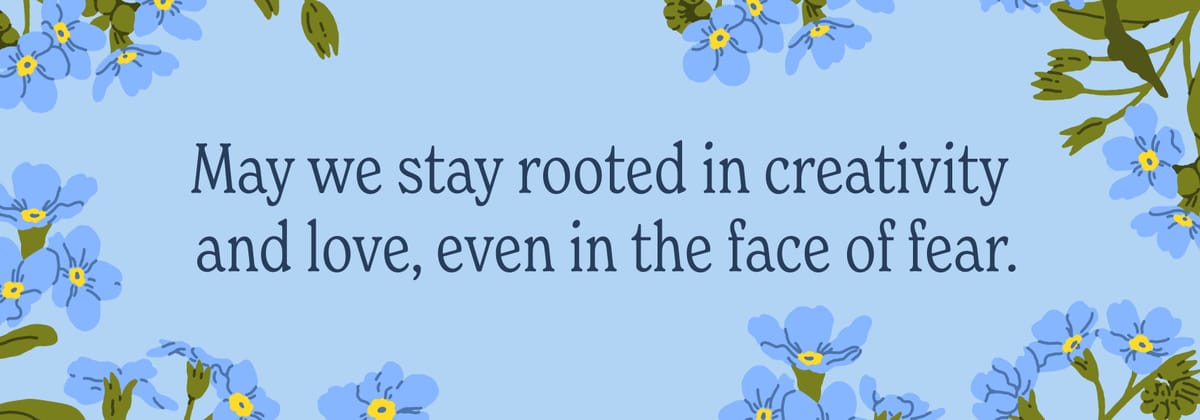
A part of me wants to shrink and wither away under the violence levied by this current administration. I feel fear take shape in my body, stiffening my joints, lodging stress along my back and neck, and amplifying my hypervigilance. Unless you are from a protected caste in this country, there is so much to fear these days. From state-sanctioned human rights abuses to overt acts of racism, ableism, xenophobia, and transphobia to the looming psychic threat of violence at any moment—I, and so many others like me, am terrified.
This terror surfaces on a trip to my friend's studio in a northwest Illinois suburb, just a handful of miles outside the imagined safety of Chicago. Along the highway, I see a giant red banner on the side of a building that reads, "Trump is our guy." My mind spins with thoughts of safety, outrage, and the weight of this psychic violence. Even though we have so much proof that nowhere is truly safe for marginalized people in this country, I still yearn for the protection of my home. At least within these walls, I am buffered, however slightly, from the most visible signs of hatred.
Later in the week, I click through a story about antifascists identifying three members of a white nationalist hate group responsible for a spree of hate crimes and propaganda throughout Chicagoland since 2023. All three are white men—a USPS worker, a financial analyst, and the last, who only identified himself as a "Polish nazi." I study their faces, trying to discern any features that mark them as nazis, but there are none. Their ordinariness sends an electric pulse of terror through my body. These men could be anyone.
This is what it feels like to be Black, queer, genderfluid, and an immigrant in this country.
That fear bubbles up again that afternoon when my partner and I walk our dogs. My breath tightens each time we pass another white man. Could he be part of a nazi group? Does he spend his weekends spewing hate-fueled rhetoric online, finding camaraderie among other “white lives matter" believers? He could be carrying a gun, legally or illegally. Does legality even matter when you’re from the ruling caste? If something were to happen to us on this walk—two visibly queer people in an interracial relationship—would anyone in this park, a place where solidarity art and protest stickers are regularly torn down, come to our aid? Would anyone even bear witness, recording on their phones? And does recording even matter anymore? See Eric Garner, George Floyd, Alton Sterling, Philando Castile. This is what it feels like to be Black, queer, genderfluid, and an immigrant in this country.
This feeling is palpable. It is dangerous to exist in a marginalized body, in public and in private, especially now that fascism has dug its jagged teeth deep into our collective fascia. My shoulders stiffened, my nose stung as I bit back tears. "I'm so afraid to be in all-white spaces," I croaked to my partner about a recent party we briefly attended. "I am genuinely afraid of white people who only know white people. Statistically, one or more of them likely holds so much hatred in their heart, whether they know it or not." Only three people of color attended the aforementioned event, including me, all of us partners of a core group member. If I had been present in my body, I would have checked in with the other two POC: Are you alright? Do you feel it, too? The world feels like hell right now; how are you holding up? I would have checked in with myself, too.
Even before I had the language to name my experience growing up in predominantly white spaces, my body always kept score. Maybe this feeling isn’t just about this moment; maybe it’s the accumulation of 31 years of existing while Black in this country. Before that, I had only known myself as a Nigerian child.
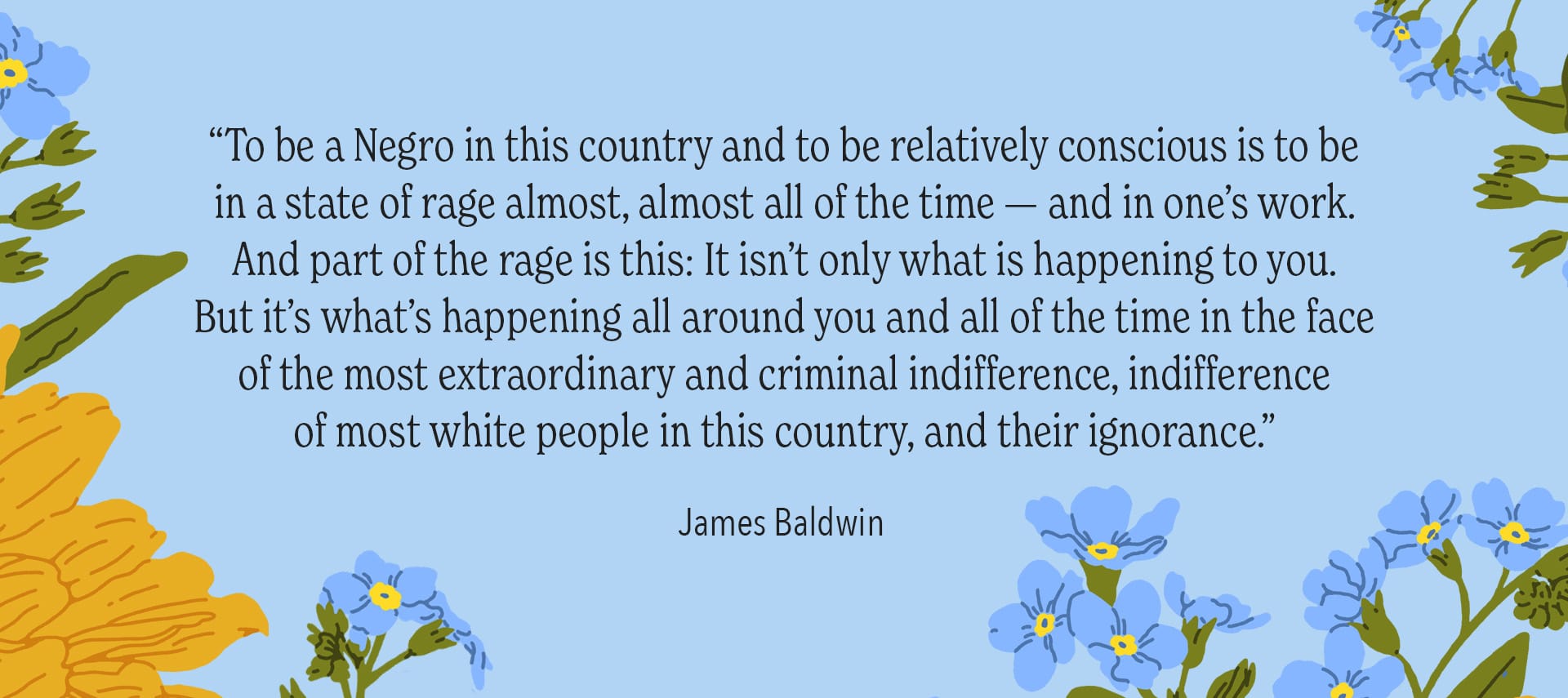
The stories we learn about ourselves and our future potential from the white, able-bodied, hegemonic caste live in our bodies. They manifest as stress, inflammation, and, ultimately, deterioration—heart disease, autoimmune conditions, chronic fatigue, depression, cancer, hypertension, and metabolic disorders. Black, Brown, Indigenous, trans, femme, disabled, and immigrant bodies bear the worst of it. We see the disparities in who suffers from long COVID and complex chronic conditions. I see it etched into my own body, in the form of old scars, the onset of disease, and cancer.
Over the past few weeks, as I documented my experiences, a monstrous knot coiled around my shoulder blades, tightening around my neck, radiating pain through the upper half of my body. When I finally worked it out using a therapy ball technique, a somatic practitioner and friend taught me, I lay flat on the ground with the two green balls nudged into the soft tissue between my spine and scapula. My body relaxed for the first time in weeks. And then, I wept. Quiet sobs, so my partner wouldn’t hear from the other side of the couch (they did hear eventually and offered me comfort). What I had been holding, all these weeks—maybe all my life, could not be intellectualized away or compartmentalized. It was written all over my body. This is what it feels like to be Black, queer, genderfluid, and an immigrant in this country.
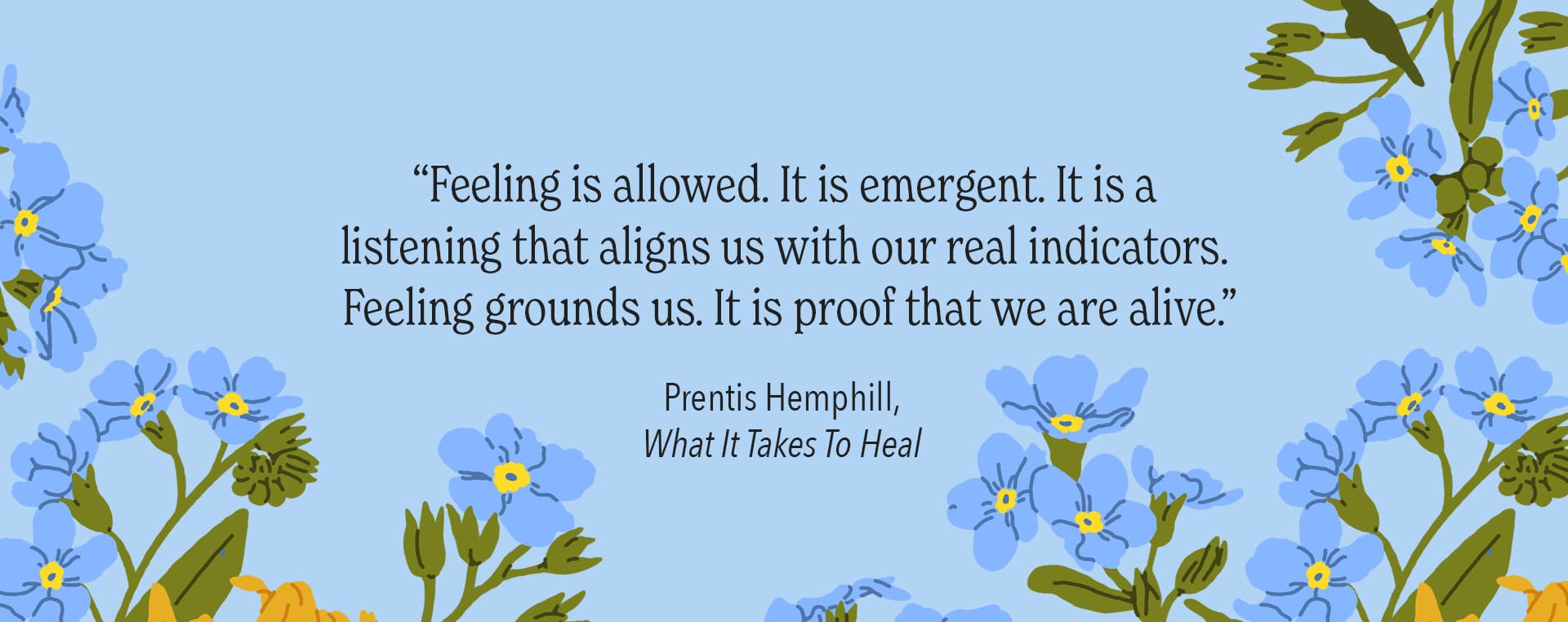
I knew, in that moment, that I had been offered a gift from the Earth. My desire to wither and shrink is the core function of empire, to make the experience of accessing our aliveness dangerous, subversive, impossible. Our revolutionary task is to refuse to shrink. To deny ourselves the right to feel, to feel it all in its fullness, is to deny our divinity. We must remember and create new ways of stretching into our being with the fullness of our imaginations.
This is why our elders remind us of the power and radical love that is creativity. It lives in our bodies. Creativity is one of our divine gifts. Empire cannot extinguish it unless we choose to relinquish or forget it. We can connect to it through music, dance, words, meals, touch, observing nature, exchanging stories of hope, outrage, and transformation, or simply by breathing into the parts of us that hurt the most.
In the chaotic arc of this month, amid continued violence on Turtle Island and everywhere the U.S. has birthed the brutality of militarism, I have also felt a connection to that creative source. A few nights ago, I babysat my friends’ twin toddlers. In the morning, they each picked a book to read. One chose The Word Collector by Peter H. Reynolds, about a boy who collects words, then loses his stacks of words to the wind, only to discover that their new, chaotic arrangement creates poetry, which he turns into comforting words of understanding and song. Inspired, he climbs the highest hill and releases all his collected words to the wind so other kids can have words, too. As I read aloud to these two little ones, I felt the bloom of creativity, love and tenderness in my spirit. I had experienced aliveness in the practice of reading to them, the act of witnessing their awe and my own.
I know that the fear that follows me and so many other marginalized folks is real. It’s stored in our bodies as trauma, and if we don’t allow it space to be witnessed and transformed, it can rob us of our selfhood and our ability to turn toward each other in kindness and love. Even when I feel most afraid, I am still offered precious moments when I experience the cracks in the facade—a glimmer of hope, new croppings of dandelions, violets, and clover pushing through the gaps.
The universe offers us moments to choose aliveness, even in the face of fear. To acknowledge fear, to allow it to settle, and to move it out of our bodies when we are able—this is a revolutionary act. It is an act of resistance to turn toward life, toward love, toward creativity. And it is not a task we must bear alone. It takes community, friendship, and the wisdom of the Earth to help us remember that we do not have to shrink in order to survive.
May we stay rooted in creativity and love, even in the face of fear. May we remain open to ancestral ways of being and relating that make us feel most alive in our bodies, minds and spirits. It is our divine right to exist in our fullness, together.

My friend, Barry Lee, created the 'Gentle Reminders Journal' to help you deepen your relationship, intuition, and trust in yourself, your values, and community. As I've spent time reflecting on the journal's questions, I've been struck by the gentle invitations towards tenderness with myself. What I love most is that this journal is a source of grounding reminders during challenging times, offering support when I'm feeling despair, lost or overwhelmed. I recommend it to anyone who wants to explore their spirit, values, and purpose, and to feel supported on their journey.
Thank you to every person who continues to support my art and writing practice. This publication is free. You can support my work and ongoing mutual aid efforts by purchasing my art or sharing this newsletter.

